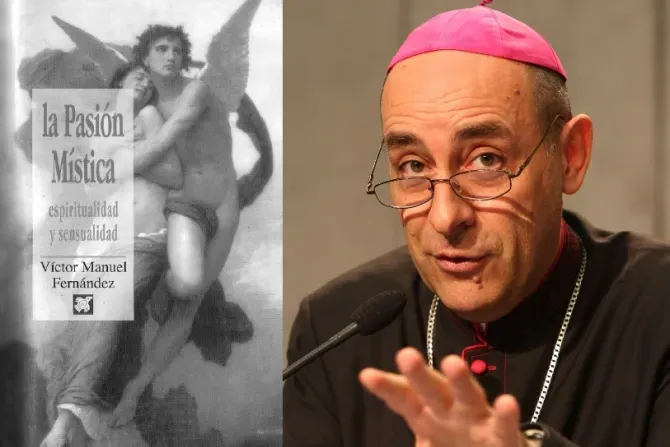In addition to the differences in theology and approach, Petri also pointed to a major distinction in the tone used in Fernández’s book, noting that John Paul II often uses euphemisms and “he doesn’t speak so graphically about the marital act.” He said a priest should not speak in a way “that would scandalize the faithful or that would harm their piety.”
“This is why [Fernández] had withdrawn the book,” Petri said. “He understood that this could happen.”
Skoch agreed, saying that Fernández is “too descriptive” and the graphic language is “unnecessary and imprudent” and can be “problematic due to the reader’s takeaway.”
She added that “it’s very easy for all of this to get misconstrued,” which “[Fernández] himself has said.”
Throughout the chapters focused on sexual activity, Fernández typically avoids specifying that he is speaking about these relations within the confines of marriage.
(Story continues below)
Failure to recognize damage of pornography
One part of the book also discusses Fernández’s perceived distinctions with regard to the extent to which men and women are aroused by “hardcore pornography” without clarifying the Church’s objection to pornography or discussing its negative effects.
Petri said that when discussing pornography, it is important to convey that it is “destroying relationships [and] destroying marriages.”
Skoch noted that this section in particular could cause confusion because “it falls short in clarifying and condemning” pornography.
The book also briefly mentions homosexuality, stating that the “joyful experience of divine love” will not necessarily “free me from all my psychological weaknesses” and uses the example that “a homosexual will [not] necessarily stop being homosexual.”
He then cites the Catechism of the Catholic Church, which states that the imputability and responsibility for a sinful action could be diminished or even nullified in some circumstances, such as ignorance, habit, or psychological or social factors.
“Let us remember that God’s grace can coexist with weaknesses and even with sins, when there is a very strong conditioning,” Fernández says. “In those cases, the person can do things that are objectively sinful, without being guilty, and without losing the grace of God or the experience of his love.”
Petri said this “could be true with any sort of sexual vice,” but added that “I don’t think you lead with that … and it’s not an excuse.” He said that addiction could mitigate or eliminate culpability with sexual sins but that one should work to prevent that addiction.
The resurfaced book was not listed on the official list of Fernández’s publications, which was circulated by the Vatican when Pope Francis appointed him as the head of the Dicastery for the Doctrine of the Faith. However, Fernández said in an interview with the Spanish news agency EFE that the pontiff was aware of the book.
“I knew that, in the midst of polemical issues, they could use old things like this book,” Fernández said. “I had informed the pope that this could happen when he proposed to me this position for the second time, but this was already clear to him and he also knew about this book.”








